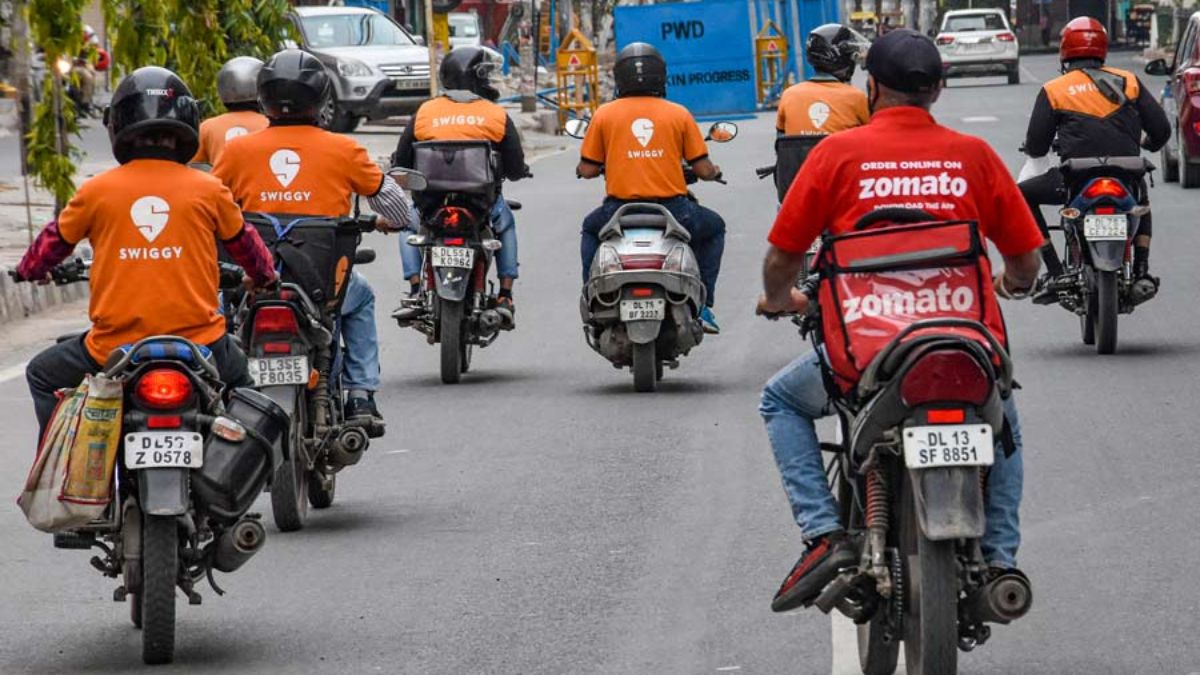In a transformative move for India’s food and beverage industry, leading online food delivery platforms like Blinkit, Big Basket, Swiggy, and Zomato may soon start delivering drinks right to your doorstep.
According to a report by The Economic Times, six states—Karnataka, Haryana, Punjab, Tamil Nadu, Goa, Kerala, and Delhi—are considering running this initiative as a pilot project. Currently, online alcohol delivery is only available in West Bengal and Odisha.
This experimental initiative will initially focus on delivering low-alcohol beverages such as beer, wine, and liqueurs.
What’s driving this move, and will it really help boost sales? Let’s take a closer look.
The drive for convenience
The COVID-19 pandemic significantly accelerated the shift toward online shopping and home delivery. With consumers becoming accustomed to getting goods delivered to their doorsteps, this trend further paved the way for food delivery platforms to expand their offerings to include alcoholic beverages.
West Bengal began experimenting with home delivery of liquor in June 2020, initiated by the state beverage corporation through an e-retail app.
Swiggy, Spencer’s, and a few other platforms joined the initiative and it soon proved to be a hit.
A local who regularly ordered his drinks through Spencer’s had told the newspaper, “I am doing it through Spencer’s and it’s hassle-free.”
Home delivery orders accounted for around 15 per cent of counter sales, a leading retailer in Kolkata told _The Times of India.
_
Similarly, other states including Maharashtra, Jharkhand, Chhattisgarh, and Assam had temporarily allowed alcohol deliveries under strict conditions but despite these restrictions, the initiative met was with success.
Impact Shorts
More ShortsAccording to retail industry executives, online deliveries have resulted in a 20-30 per cent increase in sales in West Bengal and Odisha so far.
Although these permissions have since lapsed, some local platforms in Maharashtra continue to offer delivery services.
What’s driving the expansion?
“This is to cater to a growing expat population, especially in larger cities, changing profiles of consumers who perceive moderate alcohol-content spirits as recreational drinking along with meals, and women and senior citizens who have flagged buying from traditional liquor vends and shop-front experiences as unpleasant,” an industry executive as quoted in The Economic Times report.
In May 2021, ISAWI, in partnership with LocalCircles, a social media platform, conducted a survey on liquor deliveries covering 33,000 respondents across eight cities. About 81 per cent consumers in Delhi, Chennai, Bengaluru and Hyderabad said that they would like to use home delivery services citing convenience, brand availability, and safety as the reasons to justify their response.
The state authorities are now gathering feedback from e-commerce platforms and spirits manufacturers about the potential benefits and drawbacks of online alcohol delivery.
The positives
Dinker Vashisht, Vice-President of Corporate Affairs at Swiggy, emphasised the benefits of the online delivery model, noting that it ensures end-to-end transaction records, age verification, and adherence to limits.
“Further, online tech stacks synchronise with regulatory and excise requirements, ensuring adherence to timings, dry days, and zonal delivery guardrails,” he told The Economic Times.
In West Bengal, customers must complete a one-time instant age verification process by uploading a picture of their valid government ID and a selfie for authentication. They also face a cap on order quantities set by the state’s excise laws.
Rahul Singh, Chief Executive of the pub chain The Beer Cafe, echoed these sentiments, stating in The Economic Times, that online home deliveries of liquor will ensure responsible and regulated alcohol distribution while also enhancing consumer convenience, driving economic growth, and keeping in line with global trends.
The response from the industry and breweries has also been welcoming. Industry executives noted that makers of beers and wines, such as United Breweries with its Kingfisher brand and AB InBev, which owns Budweiser, have shown significant interest in home delivery of beers. This trend is particularly appealing as beers align well with grocery shopping habits, especially among consumers in metropolitans.
The challenges
The implementation of online alcohol delivery proposals remains a challenge for delivery platforms as multiple political backlashes, perception challenges, and pressure from physical retail bodies continue to hinder their operations.
HipBar, one of the major e-commerce players for home delivery of alcohol, began its operations in Karnataka in 2021, however, its services ceased because of “certain local lobby pressures”, its founder Prasanna Natarajan told The Times of India. The company had even filed a case in the Supreme Court.
He further said that is an uphill battle when it comes to building operations in wide swathes of the country because the rules of operating in different markets differ greatly.
“There’s a fear of what happens when underage people buy it, or what happens when there’s domestic violence because of reckless consumption. There’s also a concern that duties will be evaded and the direct channel to the customer gets exploited because the government stands to lose the Rs 3 in levies they get for every rupee a manufacturer makes,” Natarajan had told the newspaper.
Undoubtedly, there are hurdles to overcome. Still, this pilot project across several Indian states is an exciting prospect for businesses and consumers alike. If successful, this move could set a precedent for other markets and industries to follow.
With input from agencies


)

)
)
)
)
)
)
)
)



